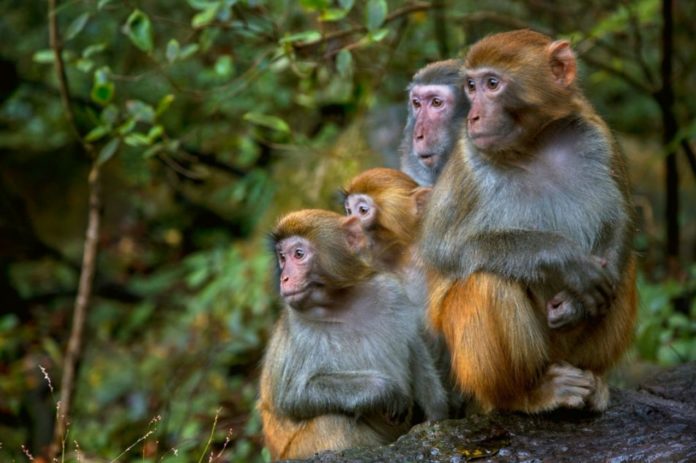Humans getting infected with Monkey B Virus is “extremely” rare, according to the Center for Disease Control and Prevention (CDC). If the infection is not treated promptly, it may cause “serious brain damage” or even death.
According to the Chinese Center for Disease Control and Prevention’s (China CDC) Weekly journal, a 53-year-old veterinary surgeon died in Beijing after contracting the Monkey B Virus (BV) in the country’s first human case.
- Does This Mean We Stopped Being Animal and Started Being Human Due to ‘Copy Paste’ Errors?
- The One Lifestyle Choice That Could Reduce Your Heart Disease Risk By More Than 22%
- Aging: This Is What Happens Inside Your Body Right After Exercise
- Immune-Boosting Drink that Mimics Fasting to Reduce Fat – Scientists ‘Were Surprised’ By New Findings
- Gun Violence in America: What They Don’t Talk About at the Debate
The man became infected with the virus while dissecting two dead monkeys in a Beijing lab on March 4 and 6. After a month, the unidentified veterinarian began feeling nausea and vomiting, followed by a fever and neurological problems. He died on May 27, the statement said, after visiting several hospitals and physicians.
Although fluid samples taken from the man showed he had BV, it seems he did not transmit the illness to anybody, since his close relatives tested negative.
According to the China CDC, zoonotic BV infections have been reported before among North American laboratory researchers, primate veterinarians, and animal care workers.
However, there were no fatal or even clinically evident BV infections in China before 2021
the researchers wrote.
The US CDC says that there’s only one known case of human-to-human transmission of the virus, so there’s no need to sound the alarm for now.
People typically get infected with the B virus if they are bitten or scratched by an infected macaque monkey, or have contact with the monkey’s eyes, nose, or mouth
CDC states.
Although infection with the Monkey B Virus is “extremely rare” in humans, it may result in “severe brain damage or death if you do not get treatment immediately.”
The China CDC’s Weekly does not identify the cause of death of the vet, but it state that the illness has a fatality rate of between 70% and 80%.
- Does This Mean We Stopped Being Animal and Started Being Human Due to ‘Copy Paste’ Errors?
- The One Lifestyle Choice That Could Reduce Your Heart Disease Risk By More Than 22%
- Aging: This Is What Happens Inside Your Body Right After Exercise
- Immune-Boosting Drink that Mimics Fasting to Reduce Fat – Scientists ‘Were Surprised’ By New Findings
- Gun Violence in America: What They Don’t Talk About at the Debate
Thus, the researchers conclude, BV in monkeys presents a “possible zoonotic danger” to occupational workers.
Image Credit: Getty
